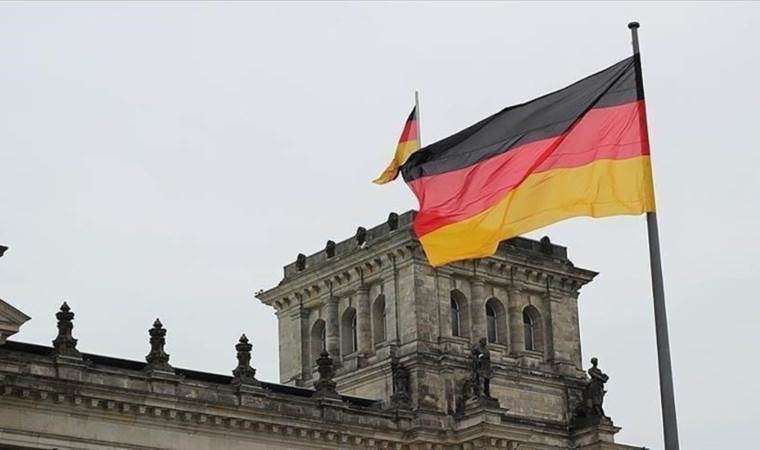Authors Columns of the Day Sport Guest Life All Authors
Democratic Constitutional State and the Rule of Law
The rule of law mandates that legislative, executive, and judicial powers adhere to and respect the law in all their decisions and practices.
Universal democracy, at its core, is founded on the rule of law. This principle, as a primary tenet, dictates that political authority's scope is confined within the parameters of legal principles and is subject to legal scrutiny. The rule of law denotes a condition where a state conducts its activities and makes decisions by legal norms, thereby ensuring legal security for its citizens.
From the dominance of the 'police state' in the Middle Ages to the subsequent adoption of the 'rule of law' model, followed by the establishment of the rule of law, this historical evolution has been marked by significant suffering, bloodshed, and revolutions spanning centuries.
Contemporary universal democracy hinges on essential components: Open, equitable, honest, and lawful general elections; constitutional assurances safeguarding the fundamental rights and freedoms of citizens; and a constitutional system guided by the principle of the separation of powers, wherein each branch oversees the others. In addition to these elements, the existence and functionality of a Constitutional Court, responsible for judicially reviewing the constitutionality of laws and safeguarding citizens' constitutional rights, are imperative.
The separation of powers, a cornerstone of democracy, finds its scholarly origins in the work of the French philosopher Montesquieu. In his 1748 book "The Spirit of the Laws" (De L'esprit Des Lois), he articulated, "Abuse of power erodes citizens' freedom. The entity possessing political power is inherently inclined to abuse it."
Judgement
In a genuine universal democracy, it becomes impossible to assert its authenticity if the judiciary succumbs to the influence of the executive. Thus, the presence of an independent judiciary stands as a paramount necessity. In this regard, the existence of an independent and impartial Constitutional Court becomes more significant.
Judicial Review of Constitutionality of Laws
What transpires when a law sanctioned by the Parliament is deemed unconstitutional?
The inception of judicial review of the constitutionality of laws can be traced back to the United States. The landmark decision of the US Supreme Court in the Marbury v. Madison case in 1803 laid the foundation for the judicial review of laws. That revolutionized constitutional law and democratic theory, embodying Montesquieu's principle of the separation of powers in legal terms. In the judgment scribed by John Marshall, President of the US Supreme Court, the following declarations were made:
- Any rule of law loses its efficacy when confronted with a superior rule of law
- The Constitution stands as a rule of law superior to laws
- Consequently, laws lose their potency against the Constitution. In such instances, the judge must adjudicate the case by the Constitution, not the law
Emergence of Constitutional Courts in Europe
The evolution of the rule of law in Europe spanned centuries, with the establishment of constitutional courts occurring only after the Second World War.
The pre-World War II scenarios in Germany and Italy serve as symbolic instances of democracy's dismantling and the ascent of authoritarian regimes.
Adolf Hitler, leveraging the mechanisms of democracy, governed Germany from 1933 to 1945 under the Nazi party. The Constitution was set aside, unconstitutional laws were enacted and enforced.
A parallel occurrence unfolded in Italy, where Mussolini's fascist regime materialized using analogous methods.
Post-Second World War, Germany and Italy drew lessons from this anti-democratic backdrop. European nations crafted new constitutions, adopting the principle of judicial review of the constitutionality of laws, akin to the US practice since 1803. Italy in 1947, Germany in 1949, and France in 1959 established constitutional courts within their new constitutions. Portugal in 1976 and Spain in 1978 subsequently embraced this trajectory.
Turkey and the 1961 Constitution
The 1961 Constitution drew inspiration from these European developments, making it widely regarded as the most progressive and law-oriented Constitution in Turkish history.
The new constitutions in Europe embraced a modern concept of sovereignty. They instituted constitutional courts to curb the exercise of sovereignty by any single entity, individual, or political authority, preventing the drift toward dictatorship. In modern democracies, the era of a political party doing as it pleased based solely on its parliamentary majority has ended.
The primacy of the rule of law and the democratic right to self-preservation took precedence. In European nations, the advent of constitutional courts was followed by the establishment of the European Court of Human Rights (ECHR), effectively limiting the powers of political authorities.
Nowadays, countries lacking constitutional courts are not acknowledged as democratic; they are deemed incomplete, hybrid, or ineffective semi-democracies.
Interpreting the Constitution
With this foundational context, we can delve into the recent significant upheaval.
Last week, a seismic event occurred within the upper echelons of the Turkish judiciary. The initial court in Istanbul and the 3rd Criminal Chamber of the Court of Cassation disagreed on some crucial provisions of the constitution.
Can Atalay, elected as an MP, was expected to be released from prison due to his parliamentary immunity. The Constitutional Court had determined that his continued imprisonment violated his rights. The Istanbul 13th High Criminal Court was obligated to adhere to this ruling. However, instead of complying, it forwarded the case to the 3rd Criminal Chamber of the Court of Cassation, as if tossing a ball into the air. The 3rd Criminal Chamber exceeded its authority by filing a criminal complaint against the judges of the Constitutional Court; it should have complied with the Constitutional Court's decision.
Exceeding Jurisdiction and Unconstitutionality
The Constitution of the Republic of Turkey meticulously outlines the role of the Constitutional Court (CC). Article 11, titled "The Binding Force and Supremacy of the Constitution," establishes the foundational principle: "The provisions of the Constitution are the fundamental rules of law binding on the legislative, executive and judicial organs, administrative authorities and other organisations and persons."
Article 148 of the Constitution delineates the duties and powers of the Constitutional Court. The concluding paragraph of Article 158 asserts, "In case of conflicts of jurisdiction between other courts and the Constitutional Court, the decisions of the Constitutional Court shall prevail." Furthermore, Article 153, the last paragraph of the Constitution, unequivocally states, "The decisions of the Constitutional Court are binding on the legislative, executive, and judicial organs."
In contravention of these constitutional provisions, the Istanbul 13th Criminal Court, as the initial court, acted unconstitutionally by forwarding the file to the Court of Cassation instead of complying with the decision of the Constitutional Court. The 3rd Criminal Chamber of the Court of Cassation has, in essence, elevated itself above other courts, rendering the decision of the Constitutional Court ineffectual.
However, the aforementioned constitutional articles leave no room for debate about the binding nature of the Constitutional Court's judgments.
Legal scholars, the Union of Bar Associations, and all bar associations are expressing their concerns, mobilizing and demonstrating resistance. The assessments of former President of the Court of Cassation Prof. Dr. Sami Selçuk and former President of the Constitutional Court Haşim Kılıç are pivotal. Both characterize this situation as unlawfulness, unconstitutionality, insanity, and an abuse of law (Karar newspaper, November 10, 2023).
The motive behind this confusion is a subject of debate. Some commentators suggest that the 3rd Criminal Chamber of the Court of Cassation is being manipulated for political ends. It is asserted that all this is a prelude to the new constitution that the AKP is formulating.
The Minister of Justice has also indicated that "crises will be resolved with the new constitution."
Who Stands to Gain?
This confusion serves no one's interests. In fact, the AKP government incurs the greatest damage. Turkey already ranks poorly in rule of law reports, and this situation will be met with scepticism in the Western world, potentially relegating Turkey to the status of a non-democratic country. Discussions surrounding the Constitutional Court will not work in favour of the AKP but will give rise to arguments against it. Minister of Treasury and Finance Mehmet Şimşek and Central Bank Governor Gaye Erkan are scheduled to visit New York in January for an investor meeting. Their primary inquiry will likely revolve around this violation of the law. Investors are disinclined to engage with a location where the rule of law is compromised.
The rule of law mandates the adherence of all state organs to the law as a fundamental condition. Particularly, higher judicial bodies must adhere strictly to the law.
The Constitution and basic rules of law should not be manipulated for political motives.
Yazarın Son Yazıları All Columns
Günün Köşe Yazıları
Most Read News
-
 China integrates AI into undergraduate studies
China integrates AI into undergraduate studies
-
 South Korea, US to hold trade talks this week
South Korea, US to hold trade talks this week
-
 Germany cuts economic growth forecast to stagnation for
Germany cuts economic growth forecast to stagnation for
-
 6.3 magnitude earthquake strikes off Indonesia’s Talaud
6.3 magnitude earthquake strikes off Indonesia’s Talaud
-
 Kremlin says Putin open to talks on civilian strikes mor
Kremlin says Putin open to talks on civilian strikes mor
-
 South Korean military holds live-fire drills near inter-
South Korean military holds live-fire drills near inter-
-
 Wife of former US Senator Menendez found guilty in bribe
Wife of former US Senator Menendez found guilty in bribe
-
 Harvard University sues Trump administration over fundin
Harvard University sues Trump administration over fundin
-
 Zelenskyy demands Russian clarity over strikes on civili
Zelenskyy demands Russian clarity over strikes on civili
-
 Pope Francis' funeral to take place on April 26, Vatican
Pope Francis' funeral to take place on April 26, Vatican











